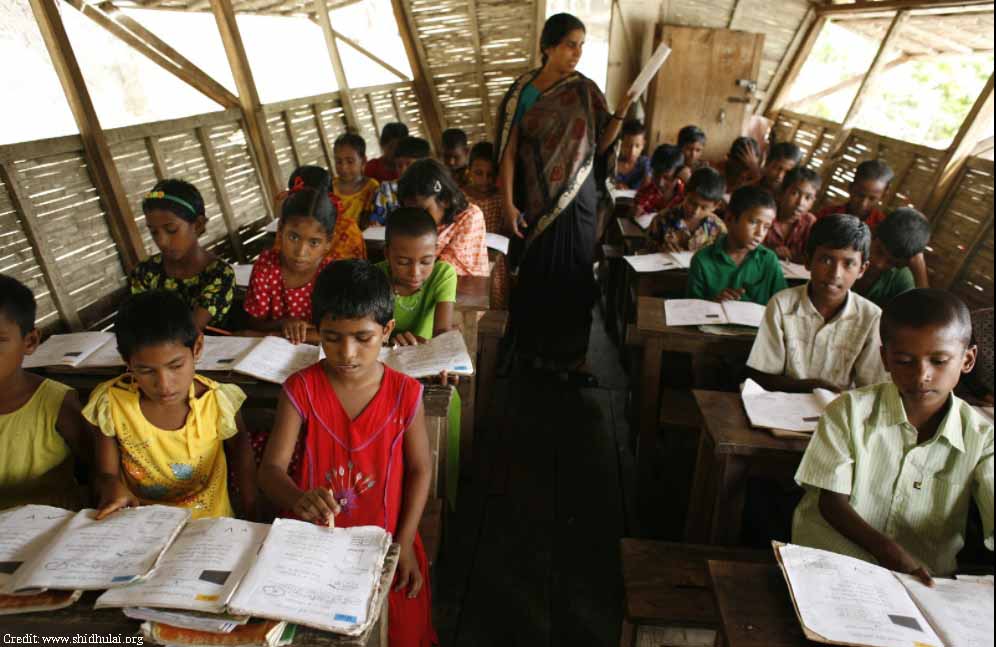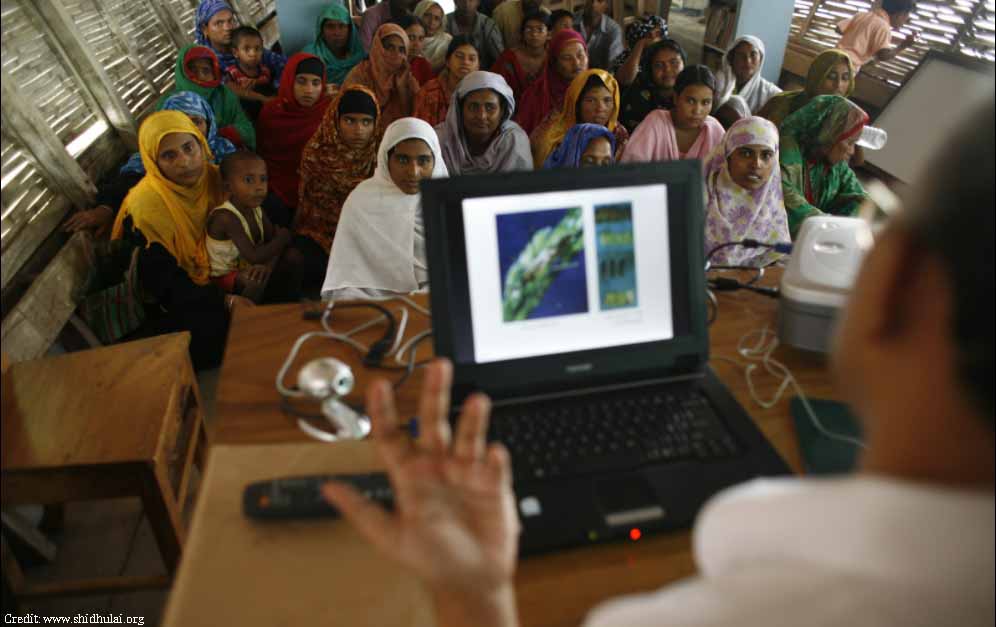March 30, 2022
The Floating Schools of Bangladesh by Precious Kamei

I If the children cannot go to school, bring the school to them. By a boat, in this case. And that's exactly what Mohammed Rezwan, an Architect, Social Entrepreneur, and the Executive Director and Founder of Shidhulai Swanirvar Sangstha floating schools in Bangladesh did.
In recent years, due to climate change, there has been an increase in flooding in South Asian countries. Bangladesh has seen some of the worst flooding in the past. Every monsoon rains brings annual flooding in Bangladesh that affects two-thirds of the country. With more than half of the country under flood water, regular school sessions are not a possibility.
The school boat idea also got recognised by the United Nations as an innovation, and received the “UNDP Equator Prize 2006” and “UNEP Sasakawa Prize 2007”.
In a resource-poor country like Bangladesh, it's not just the problem of
outdated textbooks, poor classroom conditions. Adding flood to that mix means:
i) increase in the number of dropouts due to the absence of a proper
classroom during monsoon
ii) children dropping out to earn money
iii) far-away schools mean children have to walk long distances in unsafe environments

The floating schools come as the only chance for these children to get an education. Operating school boats since 2002, the Shidhulai Swanirvar Sangstha now operates a 56-vessel fleet that consists of schools, libraries, health clinics, solar workshops, floating training centres and even ‘playgrounds’.
These solar-powered floating schools act as school buses as well as school houses. These boats can be seen picking up students from riverside villages (pick and drop), making the commute easy for the children. Each classroom can accommodate up to 30 students, and provide basic primary education up to fourth grade. The classrooms are equipped with books, internet-linked electronic devices which keeps the students up-to-date with the use of technology and have access to educational websites.
The project has ensured year-round access to education, and it's not just textbook knowledge that gets imparted in these classrooms. The project has also made river-based environmental education a part of the curriculum. This has, in turn, helped the locals understand the environment and the importance of water conservation.
About the Organisation
Shidhulai Swanirvar Sangstha is a registered non-profit organisation with the NGO Affairs Bureau of Prime Minister's Office of Bangladesh Government, operating in the flood-prone regions in north-western Bangladesh. Mohammed Rezwan, the Executive Director and Founder of Shidhulai Swanirvar Sangstha floating schools, founded the non-profit organisation in 1998. After four years, in 2002, the first floating school was built.
Social and Economic Impact in Brief:
i) All year-round access to education to students residing in flood-prone regions.
ii) Educating girls and women on new skills and human rights.
iii) Providing in-house developed Surya-hurricane solar lanterns as
scholarships. The innovation received the “UNEP Seed Gold Awards
2009”
iv) Training programmes and evening educational programmes on
sustainable agriculture and integrated floating farming methods for the adults.
v) On-board medical checkups and health education to the villagers.
The school boat idea also got recognised by the United Nations as an
innovation, and received the “UNDP Equator Prize 2006” and “UNEP
Sasakawa Prize 2007”.
Posted in Blogs and tagged Blogs, Bangladesh, Boat School
Bookmark the Permalink


